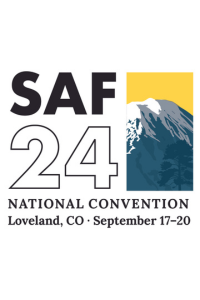Lecture Presentations
Bioenergy, Climate Change, and Carbon
Landowner Views About Carbon Payment Programs in Pennsylvania and Virginia
Wednesday, September 18, 2024
11:00 AM - 11:30 AM MST
Location: Embassy Suites, Goldenglow

Kripa Neupane, n/a (she/her/hers)
Graduate Student
Pennsylvania State University
State College, Pennsylvania, United States
Speaker(s)
Approximately 56% of U.S. forestland is privately owned, providing carbon sequestration potential. A survey in Pennsylvania and Virginia explored landowner preferences for carbon payment programs, revealing higher enrollment for shorter contracts and greater financial benefits. Attitudes toward climate change, forest management, and demographics influence participation, informing design for climate-smart forestry.
Learning Objectives:
- Upon completion, participant will be able to identify emerging opportunities for landowners to receive revenue from managing forests for carbon.
- Upon completion, participant will be able to examine landowner perspectives on carbon payment programs and forest management in the US.
- Upon completion, participant will be able to recognize the need for policy and program design to incentive climate smart forestry.

